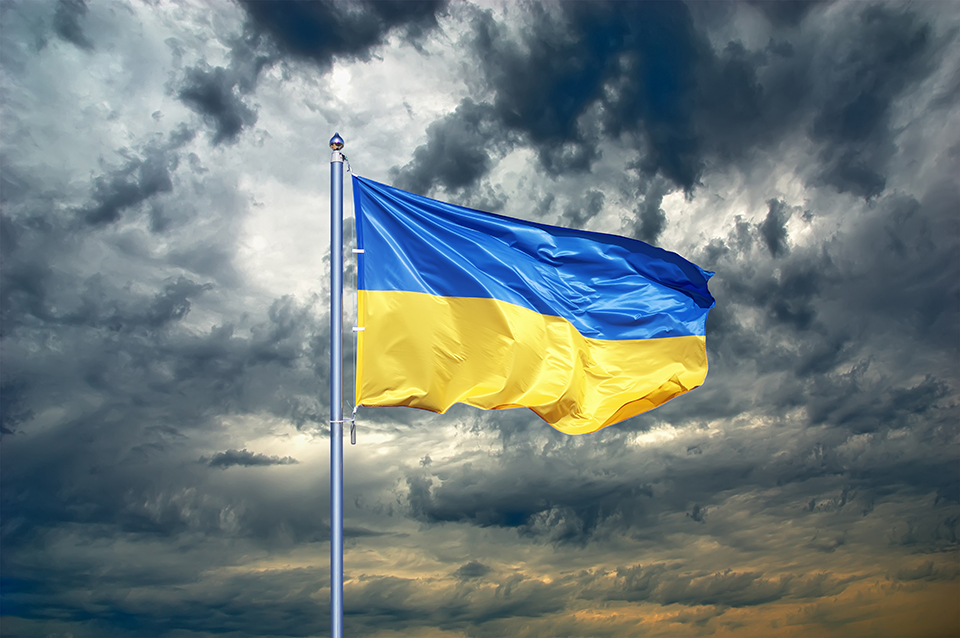Professor’s Study of Impact of War in Eastern Ukraine Provides Insight into How Long-term Conflicts Change How People See the World

CSUN criminology and justice studies assistant professor Anastasiia Timmer is studying the impact the centuries-long conflicts have on people and societies. She is using her native Ukraine as a starting point for her research. Photo credit, Silent_GOS, iStock.
War and violent conflict change people, soldiers and civilians. But what happens to members of communities, states and countries that experience generation after generation of conflict?
California State University, Northridge criminology and justice studies assistant professor Anastasiia Timmer is studying the impact that the centuries-long conflicts over the sovereignty of her native Ukraine, the latest being with Russia, to find answers to that question.

Anastasiia Timmer
“There may be a cease fire or declaration of end of the latest war, but that doesn’t not mean that the trauma is over with,” said Timmer, whose research focuses on causes of crime and violence in different countries and the role of mental health and emotions in criminal decision-making. “When we talk about the aftereffects of war and violent conflicts, we tend to talk about the immediate aftereffects, particularly on the soldiers. We don’t talk about the historical component and its effect on civilians. We don’t acknowledge how long-term, generational conflicts can shape how people view violence, how they perceive how they should be treated and how they should treat others.
“No one understands the true impact trauma has on civilians caught in the middle of such conflicts,” she continued. “They may be peace-loving people. But as conflicts continue over generations, those same people, subjected to violence again and again, may now see that violence is OK, violence against someone who isn’t like them is OK. Generational conflicts change people and how they see others. They can create a moral disengagement that then feeds into perpetuating the conflict.
“Peace does not happen overnight,” she said. “But if we want it to happen, and be permanent, we need to understand how generational conflicts shape people and cultures.”
Timmer said Ukraine’s central location between Russia and Europe, its coast along the Black Sea and its fertile farmlands have made the country a target of political powerhouses, who have long fought to control it.
“For centuries, it’s been this tinderbox, tossed from one political powerhouse to another, from Poland to Hungary, Austria, the Ottoman Empire and Russia,” she said. “The people of Ukraine have been caught in the middle, feeling that they always have to prove that they are their own sovereign country with their own identity, language and culture. Yet, at the same time, there is this sense of instability, insecurity about their future and identity, built from cumulative trauma. Trauma they learned from their grandparents, who learned it from their grandparents and so on.”
That instability and uncertainty over identity, provide opportunities for political players, in the Ukraine’s case Russia, to exploit, Timmer said.
She said a recent example involved the Russian government spreading rumors that Ukrainian government was going to restrict the speaking of Russian in the country. She noted that Russian is heavily spoken in eastern Ukraine, while most of the citizens in the western part of the country speak Ukrainian.
“For years, citizens in both regions have been able to communicate with each other without a problem, but now this is suddenly an issue,” Timmer said.
Understanding the long-term impact of generational conflict on civilians in the Ukraine can provide insight into continued conflicts around the world, Timmer said.
“When conflicts continue over time, people begin to think it’s normal,” she said. “There is this moral disengagement when you are in a constant state of war, constantly dealing with violent conflict and uncertainty. And when injustices occur, it becomes easier to justify them, and violence becomes easier to accept in all aspects of society.”
Timmer said people often dismiss the emotional toll war and violent conflicts take on people as post-traumatic stress disorder or a mental health issue.
“But those are responses only to most immediate conflicts,” she said. “And by only focusing on the most recent conflicts, we are almost taking the easy way out and offering an excuse so that we as a society, and our leaders, don’t have to take a serious look at how our actions today — compounded with the actions of our predecessors over the years, over the generations — have shaped who we are, how we think others should be treated and how we see violence.
“Those are hard questions to consider,” Timmer continued. “We are only now doing studies and truly beginning to understand how historical, generational conflict can impact people and society. They are hard questions, but we need to think about them if we want to create a better future for ourselves, and those who come after us.”

 experience
experience